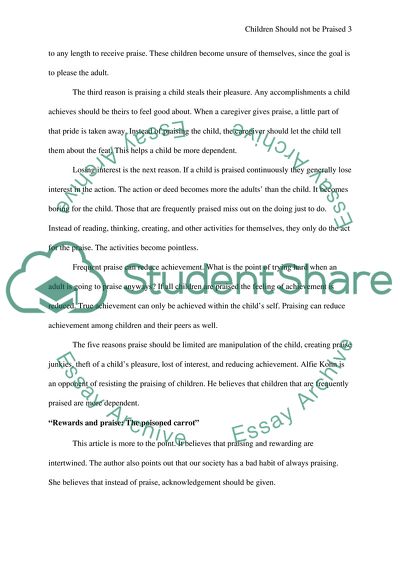Cite this document
(Instead of Praise, Acknowledgment Should Be Given to Kids Research Paper, n.d.)
Instead of Praise, Acknowledgment Should Be Given to Kids Research Paper. https://studentshare.org/psychology/1770308-five-reasonse-to-stop-saying-good-job
Instead of Praise, Acknowledgment Should Be Given to Kids Research Paper. https://studentshare.org/psychology/1770308-five-reasonse-to-stop-saying-good-job
(Instead of Praise, Acknowledgment Should Be Given to Kids Research Paper)
Instead of Praise, Acknowledgment Should Be Given to Kids Research Paper. https://studentshare.org/psychology/1770308-five-reasonse-to-stop-saying-good-job.
Instead of Praise, Acknowledgment Should Be Given to Kids Research Paper. https://studentshare.org/psychology/1770308-five-reasonse-to-stop-saying-good-job.
“Instead of Praise, Acknowledgment Should Be Given to Kids Research Paper”. https://studentshare.org/psychology/1770308-five-reasonse-to-stop-saying-good-job.


